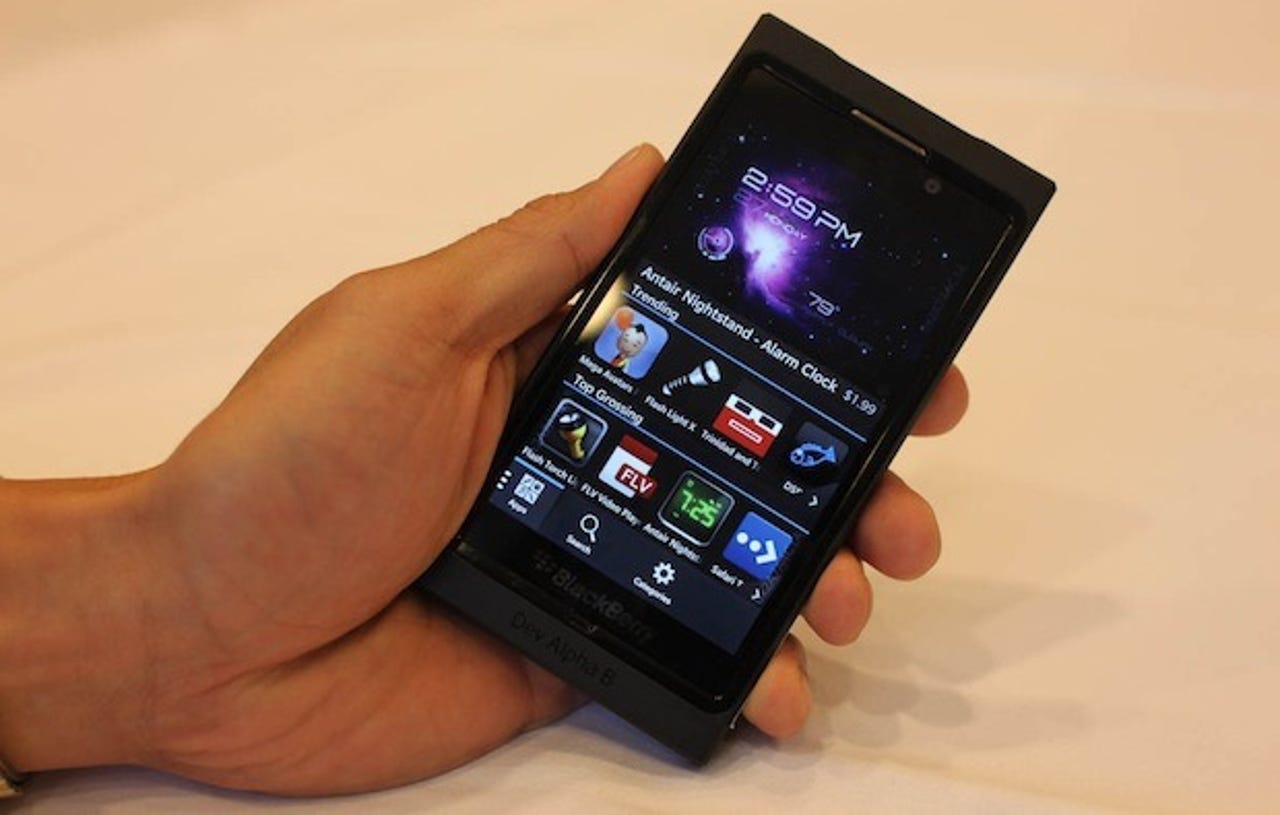Verizon, AT&T, T-Mobile will carry BlackBerry 10 phones


Research in Motion, the maker of the BlackBerry smartphone, has the support of the three major U.S. cellular carriers, including Verizon, AT&T and T-Mobile, once the platform launches later this month.
The support and interest by carriers signals confidence in the new BlackBerry 10 platform, which includes a radical new operating system and platform, and a bevy of new devices.
RIM will release six devices this year -- after a delay of more than a quarter after delays hit the company's production -- including a touch-screen phone and a QWERTY-keyboard device that will be announced at the company's launch on January 30.
All in all, the company has reiterated what it previously said that devices will go on sale in Feburary, and more than 150 carriers around the world are testing the new platform. (Enterprise customers have also been given the opportunity to test the new platform in their business settings.) BlackBerry 10 will launch with at least 70,000 applications in the application store.
But the U.S. is where much of BlackBerry 10's future rests, and gaining support from the major carriers was crucial for RIM to get even a headstart with its new business-friendly product.
While Verizon's chief executive Lowell McAdam told the Reuters news agency: "We're hopeful it's going to be a good device," and hedged on the side of caution, he said that Verizon will carry the new BlackBerry 10 platform.
Meanwhile, AT&T handset chief Jeff Bradley confirmed the second-largest U.S. cellular giant would carry the range of available devices at launch but avoided discussing specifics. "It's logical to expect our current (BlackBerry) customers will have the best BlackBerry devices to choose from in the future," he said.
T-Mobile USA will also carry BlackBerry 10, with chief executive John Legere telling reporters that the company is "extremely optimistic" that the product will be successful among business customers.
It follows news from last year that the major U.K. carriers would also support BlackBerry 10 at launch, including on EE, the U.K.'s first 4G LTE network.
With 79 million existing BlackBerry customers, RIM has to content with keeping its own customers sweet, but also reaching out to the iPhone faithful, who have jumped ship in recent months thanks to the appeal of the device but also its business-friendly platform.
The significant problem for RIM is clawing back its lost market share from enterprise customers. It's not about what the smartphone or tablet does, looks like or feels like; it's what powers the back-end system that counts.
iPhones in particular have come along way in the past year, and have taken RIM's market share, due to the back-end mobile management systems available for the platform. The iOS-powered device had the aesthetic charm and consumer appeal, but the killer decisions that had to be made by IT managers were made because it had mobile device management (MDM) compatibility. Android devices, on the most part, do not, which is why so many government agencies are heading to Apple and not Google.
According to latest Gartner figures, RIM's market share stands at just over 5 percent of the global smartphone market during the third quarter, down from just over 11 percent on the same quarter a year ago.